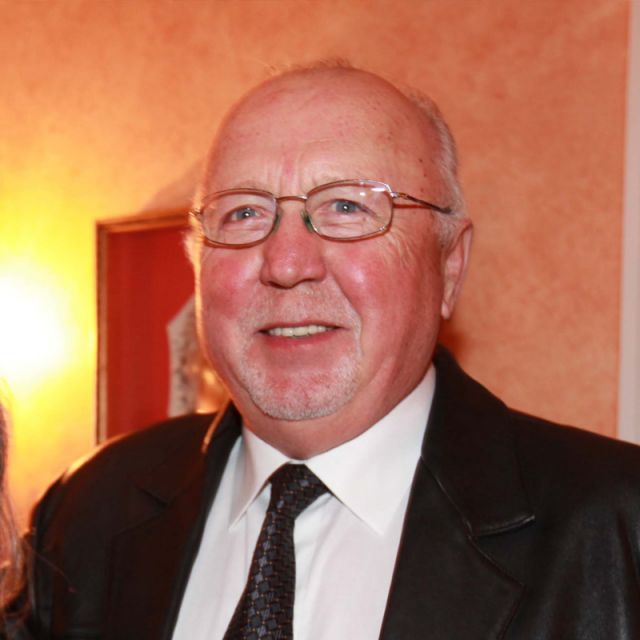“She had no children so she took me under her wing and put me into good Catholic schools. That really helped,” he said.
From his experience growing up Metis in Manitoba, St. Germain said he can relate to the poverty many First Nations people are going through.
“There’s nothing worse than living in a community where there’s nothing and you look around and there’s total poverty and despair.”
That’s why he hopes the achievable recommendations in a report released Dec. 8 by the Standing Senate Committee on Aboriginal Peoples he chairs will find support.
Entitled Reforming First Nations Education: From Crisis to Hope, the report calls for the development of a First Nationals Education Act that recognizes the authority of First Nations for on-reserve elementary and secondary education and enables the development of a structure run by First Nations similar to the three-level structure of schools, school boards and a ministry of education.
Reforms are urgently needed to address the fact that aboriginal peoples represent the youngest and fastest growing demographic in Canada, the study stresses. Estimates suggest 600,000 First Nations children will be old enough to join the workforce in 2026, and improving their education will not only affect their personal outcomes but also that of Canada’s labour force and overall productivity.
Right now the only level for on-reserve education is the schools, St. Germain said. There is no support structure such as a second-level school board and third-level ministry of education to set standards, train teachers and ensure accountability.
“The one big thing that came out was there’s no authority attached to the system now,” St. Germain said. “There has to be a certain level of authority that flows from the structure, so standards can be set, and once standards are set they are maintained.”
The report also recommends giving statutory authority to the Minister of Aboriginal Affairs and Northern Development to fund educational services on reserves and that regulations under the act would determine payments for these services that would consider demographics and remoteness of the communities as well as language preservation and revitalization.
In the report’s foreword, St. Germain outlined the effects Canadian policies have had in eroding aboriginal peoples’ traditional social and political systems. These policies “detribalized” First Nations peoples and “ghettoized” them on small reserves that could not support them, separating them from the rest of Canadian society, he wrote. Then the forced-assimilation policies of Indian Residential Schools “deliberately disconnected them from the languages, cultures and traditions, ripped them from their homes, and, in far too many cases, brutalized aboriginal children,” he wrote. “Government after government continued this vicious cycle, killing the spirit, the heart and the soul of aboriginal people.
“Against this systematic onslaught, aboriginal peoples were eventually ‘welfare-ized.’ And the results is this horrific dilemma that we face today,” he wrote.
St. Germain coined the word “welfare-ized” to describe the dependency and hopelessness that has resulted from paternalistic, top-down policies.
St. Germain said he has spoken with native people from British Columbia, where he now lives, and elsewhere who managed to lead successful lives and asked them how they did it.
“Our grandparents would never accept welfare,” St. Germain was told. “They wouldn’t allow us to accept welfare, because they saw it as the steel bullet that would actually destroy us completely.”
“Now we have to work in partnership with First Nations in a way that takes into consideration their culture, their language and the various aspects of their lifestyles,” he said. “Like in the Catholic schools, our spirituality is respected.”
The report, based on extensive consultations and on-reserve visits, outlines the crisis. Seven out of 10 First Nations students will not graduate from high school; many will never attend a school that has a library, labs or a gym.
The fundamental relationship with First Nations peoples must transform “from paternalism to partnership,” it says. It recommends “reversing the dependency inherently built into the Indian Act and ensuring the long-term self-reliance of First Nations.”
First Nations peoples living on reserves are the only Canadians who are not experiencing the benefits of a modern, well-equipped educational system, it says.
New Senate report calls for First Nations’ education reforms
By Deborah Gyapong, Canadian Catholic NewsOTTAWA - Senator Gerry St. Germain knows first-hand the role a good education can play in lifting people out of poverty and despair.
“I grew up in a Métis community where there wasn’t much hope, and there wasn’t a very strong light at the end of the tunnel,” St. Germain said in an interview.
The senator had an aunt who “sort of grabbed me out and helped our family educate me.”
Please support The Catholic Register
Unlike many media companies, The Catholic Register has never charged readers for access to the news and information on our website. We want to keep our award-winning journalism as widely available as possible. But we need your help.
For more than 125 years, The Register has been a trusted source of faith-based journalism. By making even a small donation you help ensure our future as an important voice in the Catholic Church. If you support the mission of Catholic journalism, please donate today. Thank you.
DONATE
